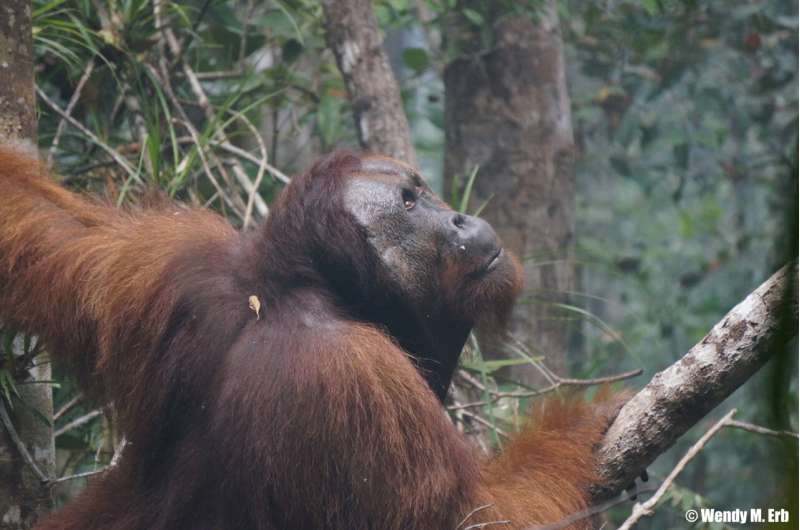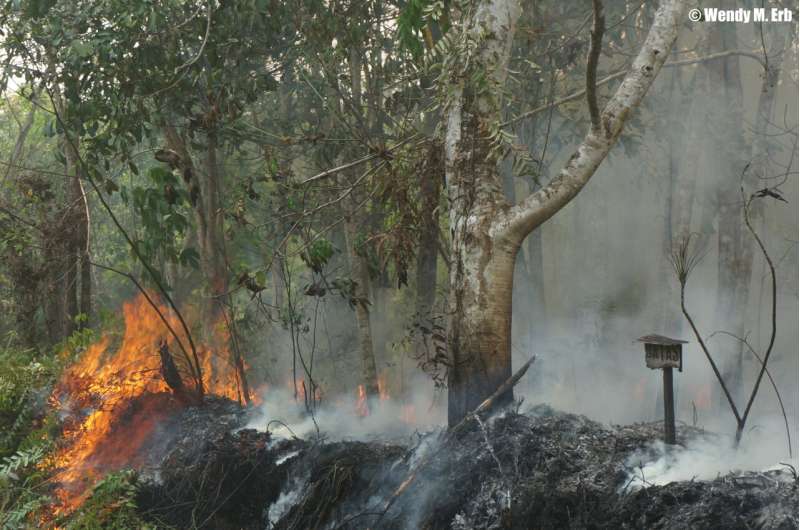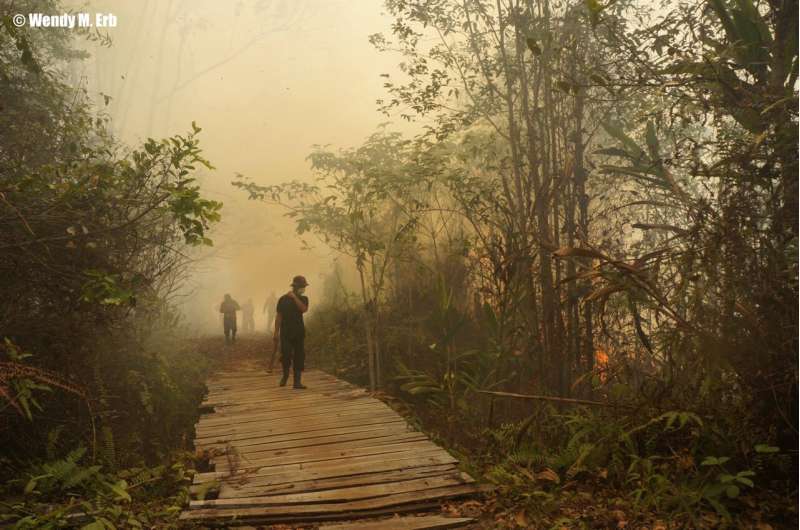This article has been reviewed according to Science X's editorial process and policies. Editors have highlighted the following attributes while ensuring the content's credibility:
fact-checked
peer-reviewed publication
trusted source
proofread
Wildfire smoke threatens already endangered orangutans

For months following peatland wildfires in Borneo, the behavior and voices of critically endangered orangutans change, according to a new study led by a researcher from the Cornell Lab of Ornithology.
These pronounced changes make it possible to assess the health of wild populations by monitoring the frequency and quality of their sounds—an alternative to the dangers posed by trying to study the animals in person during a wildfire. The study published June 13, in the journal iScience.
"The animals move around less to conserve energy," said lead author Wendy Erb, a Cornell Lab postdoctoral associate. "The orangutans also don't vocalize as much and their voices take on the equivalent of a human smoker's hack. Their voices are deeper, more raspy and shakier. These vocal features have been linked to inflammation, stress and disease–including COVID-19–in human and nonhuman animals."
Wildfires have been increasing in frequency and severity across Indonesia, as they have in other parts of the world, often related to climate change. In Indonesia, wildfire occurrence is also closely linked to El Niño cycles of warming in the Pacific Ocean. But unlike other types of wildfires, peatland fires can smolder underground for weeks and produce exceptionally high emissions of hazardous gasses and particulate matter.

Erb, in the Cornell Lab's K. Lisa Yang Center for Conservation Bioacoustics, worked with a team from the Tuanan Orangutan Research Program to collect data on adult male orangutans in Borneo. During the fire season, the region experienced its highest concentrations of particulate matter, with average daily concentrations rising nearly 12 times higher than the amount classified as hazardous to human health by the U.S. Environmental Protection Agency.
Critically endangered orangutans are well known as "indicator species" because their health and behavior reflect the quality of their environments. Increasingly frequent and prolonged exposure to toxic smoke could have severe consequences for orangutans and other animals.
This research highlights the urgent need to understand the long-term and indirect impacts of Indonesia's peatland fires, beyond the immediate loss of forests and their inhabitants.

"By uncovering the linkages between acoustic, behavioral, and energetic shifts in orangutans, this research can help scientists and wildlife managers safely monitor the health of this critically endangered species using acoustic methods," Erb said. "I see huge potential for passive acoustic monitoring to deepen our understanding of the effects of wildfire smoke on wildlife populations worldwide."
More information: Jessica L. Lecorchick et al, Wildfire smoke linked to vocal changes in wild Bornean orangutans, iScience (2023). DOI: 10.1016/j.isci.2023.107088. www.cell.com/iscience/fulltext … 2589-0042(23)01165-3
Journal information: iScience
Provided by Cornell University





















